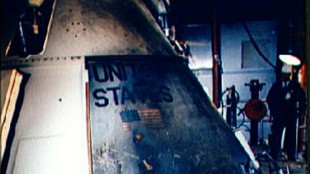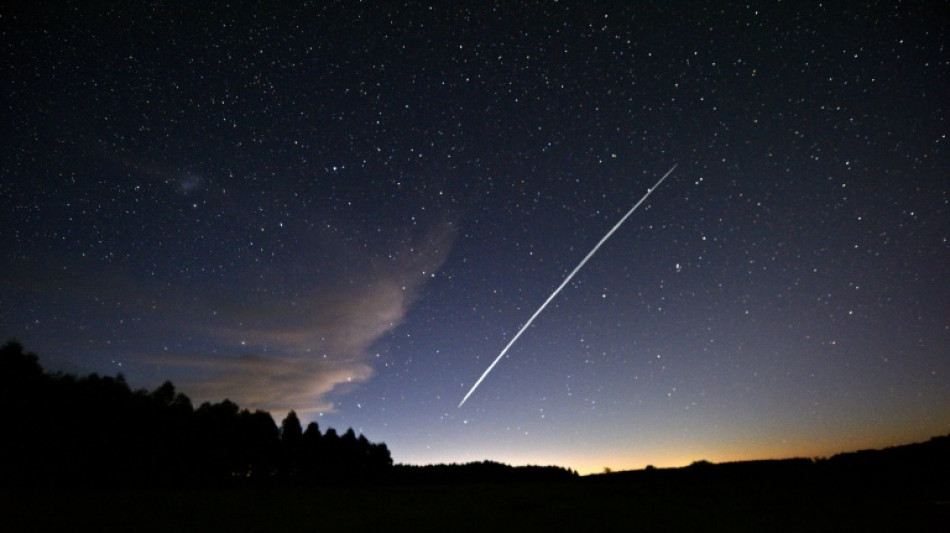
-
 Five things to know about Uganda
Five things to know about Uganda
-
Uganda votes under internet blackout and police crackdown

-
 Dreams on hold for Rohingya children in Bangladesh camps
Dreams on hold for Rohingya children in Bangladesh camps
-
Canada's Carney in Beijing for trade talks with Chinese leaders
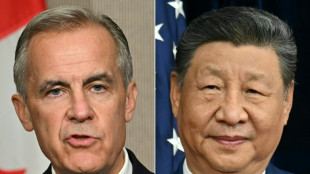
-
 All Blacks fire coach Robertson less than two years before World Cup
All Blacks fire coach Robertson less than two years before World Cup
-
Long-awaited EU-Mercosur trade pact set for signing

-
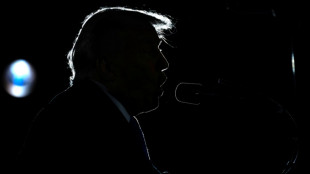 Trump embraces AI deepfakes in political messaging
Trump embraces AI deepfakes in political messaging
-
A year of Trump: US health policy reshaped in RFK Jr's image
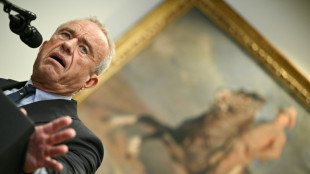
-
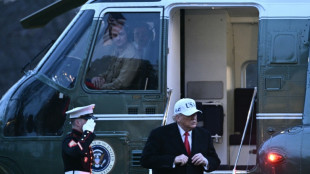 One year in, Trump shattering global order
One year in, Trump shattering global order
-
Hit TV show 'Heated Rivalry' a welcome surprise for gay hockey community

-
 Spanish singer Julio Iglesias prepares defence against abuse allegations: Hola! magazine
Spanish singer Julio Iglesias prepares defence against abuse allegations: Hola! magazine
-
Actor McConaughey seeks to patent image to protect from AI

-
 Musk's Grok barred from undressing images after global backlash
Musk's Grok barred from undressing images after global backlash
-
Hosts Morocco set up Senegal AFCON final showdown

-
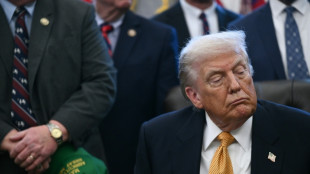 Trump says Iran killings stopped, Tehran says 'no plan for hanging'
Trump says Iran killings stopped, Tehran says 'no plan for hanging'
-
Chelsea paid for costly errors in Arsenal defeat, says Rosenior

-
 Morocco beat Nigeria on penalties to reach Africa Cup of Nations final
Morocco beat Nigeria on penalties to reach Africa Cup of Nations final
-
Golden Globes viewership shrinks again

-
 Astronauts leave ISS in first-ever medical evacuation
Astronauts leave ISS in first-ever medical evacuation
-
NASA reports record heat but omits reference to climate change
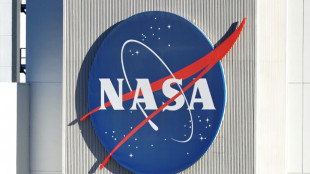
-
 Trump praises 'terrific' new Venezuela leader after call
Trump praises 'terrific' new Venezuela leader after call
-
Real Madrid crash out of Copa del Rey at Albacete on Arbeloa debut

-
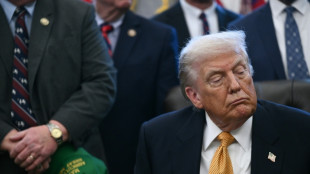 Trump says Iran killings stopped as US scales back Qatar base
Trump says Iran killings stopped as US scales back Qatar base
-
Arsenal beat Rosenior's Chelsea in League Cup semi first leg

-
 US stocks fall again as Iran worries lift oil prices
US stocks fall again as Iran worries lift oil prices
-
Inter extend Serie A lead to six points after Napoli slip

-
 Bayern beat Cologne to move 11 points clear in Bundesliga
Bayern beat Cologne to move 11 points clear in Bundesliga
-
Mane takes Senegal past Egypt into final of his last AFCON

-
 Trump says Greenland will 'work out' after Denmark fails to bridge gap
Trump says Greenland will 'work out' after Denmark fails to bridge gap
-
'Bridgerton' premieres in Paris promising 'Cinderella with a twist'

-
 California begins probe of Musk's Grok over sexualized AI images
California begins probe of Musk's Grok over sexualized AI images
-
Astronauts set to leave ISS in first-ever medical evacuation

-
 Napoli's stalemate with Parma opens door for Serie A leaders Inter
Napoli's stalemate with Parma opens door for Serie A leaders Inter
-
Syrian leader urges Kurdish integration as army sends troops east of Aleppo

-
 Denmark says White House talks failed to alter US designs on Greenland
Denmark says White House talks failed to alter US designs on Greenland
-
Venezuela looking to 'new era' after Maduro ouster, says interim leader

-
 Mane takes dominant Senegal past Egypt into AFCON final
Mane takes dominant Senegal past Egypt into AFCON final
-
UK police admit 'mistakes' over Maccabi Tel Aviv fan ban
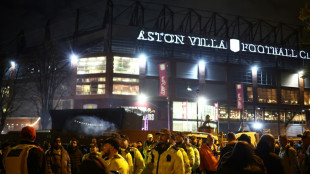
-
 Promoter says Joshua will return to ring when 'time is right' after horror crash
Promoter says Joshua will return to ring when 'time is right' after horror crash
-
California investigating Grok AI over lewd fake images

-
 Wales's Faletau set to miss bulk of Six Nations
Wales's Faletau set to miss bulk of Six Nations
-
Denmark, Greenland wrap up crunch White House talks

-
 England sweating on Fin Smith's fitness for Six Nations opener
England sweating on Fin Smith's fitness for Six Nations opener
-
NASA acknowledges record heat but avoids referencing climate change
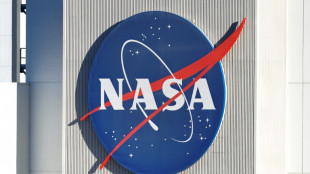
-
 England rugby league coach Wane quits role
England rugby league coach Wane quits role
-
Oil prices extend gains on Iran worries

-
 European basketball pioneer Schrempf lauds 'global' NBA
European basketball pioneer Schrempf lauds 'global' NBA
-
Denmark, Greenland in crunch White House talks as Trump ups pressure

-
 Mitchell hits ton as New Zealand down India to level ODI series
Mitchell hits ton as New Zealand down India to level ODI series
-
Syrian army tells civilians to stay away from Kurdish positions east of Aleppo


Astronomers sound alarm about light pollution from satellites
Astronomers on Monday warned that the light pollution created by the soaring number of satellites orbiting Earth poses an "unprecedented global threat to nature."
The number of satellites in low Earth orbit have more than doubled since 2019, when US company SpaceX launched the first "mega-constellation," which comprise thousands of satellites.
An armada of new internet constellations are planned to launch soon, adding thousands more satellites to the already congested area fewer than 2,000 kilometres (1,250 miles) above Earth.
Each new satellite increases the risk that it will smash into another object orbiting Earth, creating yet more debris.
This can create a chain reaction in which cascading collisions create ever smaller fragments of debris, further adding to the cloud of "space junk" reflecting light back to Earth.
In a series of papers published in the journal Nature Astronomy, astronomers warned that this increasing light pollution threatens the future of their profession.
In one paper, researchers said that for the first time they had measured how much a brighter night sky would financially and scientifically affect the work of a major observatory.
Modelling suggested that for the Vera Rubin Observatory, a giant telescope currently under construction in Chile, the darkest part of the night sky will become 7.5 percent brighter over the next decade.
That would reduce the number of stars the observatory is able to see by around 7.5 percent, study co-author John Barentine told AFP.
That would add nearly a year to the observatory's survey, costing around $21.8 million, said Barentine of Dark Sky Consulting, a firm based in the US state of Arizona.
He added that there is another cost of a brighter sky that impossible to calculate: the celestial events that humanity will never get to observe.
And the increase in light pollution could be even worse than thought.
Another Nature study used extensive modelling to suggest that current measurements of light pollution are significantly underestimating the phenomenon.
- 'Stop this attack' -
The brightening of the night sky will not just affect professional astronomers and major observatories, the researchers warned.
Aparna Venkatesan, an astronomer at the University of San Francisco, said it also threatened "our ancient relationship with the night sky".
"Space is our shared heritage and ancestor -- connecting us through science, storytelling, art, origin stories and cultural traditions -- and it is now at risk," she said in a Nature comment piece.
A group of astronomers from Spain, Portugal and Italy called for scientists to "stop this attack" on the natural night.
"The loss of the natural aspect of a pristine night sky for all the world, even on the summit of K2 or on the shore of Lake Titicaca or on Easter Island is an unprecedented global threat to nature and cultural heritage," the astronomers said in a Nature comment piece.
"If not stopped, this craziness will become worse and worse."
The astronomers called for drastically limiting mega-constellations, adding that "we must not reject the possibility of banning them.""
They said that it was "naive to hope that the skyrocketing space economy will limit itself, if not forced to do so," given the economic interests at stake.
H.Jarrar--SF-PST

